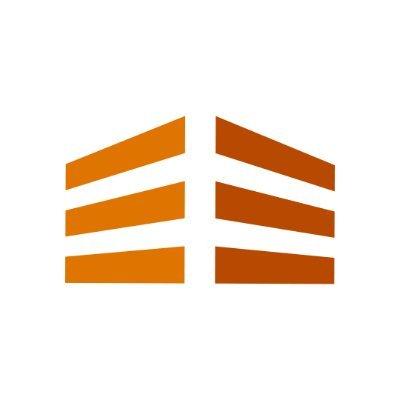Invest in commercial real estate projects
Invest in multifamily rental properties
Investments
$25,000
Minimum investment amounts on CrowdStreet start at $25,000, with the exact threshold varying by individual project.
Investments
$500
DiversyFund's minimum investment amounts differ by investment type. It's $500 for Growth REITs targeting multifamily properties. For accredited investors, Premier Direct SPVs require a $50,000 minimum, while the Premier Opportunity Fund has a $25,000 minimum.
Moderate Risk
3/5
Investing via CrowdStreet entails typical real estate risks such as market fluctuations and property-specific issues, with no guarantee of returns and potential for capital loss.
Moderate Risk
3/5
Investing in DiversyFund carries risks such as market changes, economic factors, and specific property risks, and there's always the potential for loss, including the initial investment.
Minimum Liquidity
1/5
CrowdStreet investments are generally illiquid, with capital committed for several years until a potential liquidity event, such as a property sale or refinancing, without a secondary market for early exit.
Minimum Liquidity
1/5
DiversyFund investments are illiquid, with capital committed for approximately 5 to 7 years. There is no secondary market or immediate option for investors to sell their shares prior to the end of the investment term.
Receive new reviews from Fintorial
High Return
17.9 %
CrowdStreet has a historical 17.9% Realized IRR and a typical 3.1-year hold period for investments, with returns varying based on equity shares, debt interest, or hybrid terms, and property sales.
Moderate Return
11-18 %
DiversyFund has historically reported annual returns between 11% and 18%, but future returns can vary and are not guaranteed.
Long-term Investment
3-10 years
CrowdStreet investments typically have a hold period of 3.1 years on average, with some ranging from 3-5 years and others up to 10 years, reflecting a long-term investment horizon.
Long-term Investment
5-7 years
DiversyFund's REIT I has an investment term of 5-7 years, and the company is using the full term to maximize property values before sale and subsequent investor disbursements.
Who can invest
United States
Individuals must be accredited U.S. residents with valid identification to invest on CrowdStreet, while entities need U.S. accreditation, taxation, and verification, subject to CrowdStreet's approval.
Who can invest
United States
DiversyFund's Growth Offerings are accessible to all investors, while its Premier Offerings are restricted to accredited investors only.
Moderate Volatility
3/5
Assets on CrowdStreet may experience volatility due to economic shifts, interest rate changes, and local market trends, affecting property values and investment returns.
Moderate Volatility
3/5
Real estate assets on DiversyFund can experience volatility due to market conditions, interest rates, and local economic trends, potentially impacting property values and investment performance.
Regulation and audits
SEC Regulated
CrowdStreet's offerings are regulated by the SEC and subject to regular audits for compliance, ensuring adherence to legal standards for securities and real estate investments. However, details on specific audits and regulations are not publicly disclosed.
Regulation and audits
SEC Regulated
DiversyFund is subject to SEC regulations and conducts regular audits to ensure financial transparency. These audits and disclosures are available for investor review as part of the company's compliance with regulatory standards.
Insurance
Yes
CrowdStreet's properties are typically insured against physical damage, but this does not cover market risks or guarantee full property value protection. Investors should note that insurance mitigates, but doesn't eliminate, all investment risks.
Insurance
Yes
DiversyFund's properties are generally insured against physical damage, but this insurance does not cover market-related losses or economic downturns, and it may not fully cover the properties' market value.
Payouts
Dividends
CrowdStreet investors may receive distributions, typically on a quarterly basis, based on the cash flow and profitability of their investments, but these are not guaranteed and depend on the specifics of each project.
Payouts
No Recurring Payouts
DiversyFund generally reinvests dividends into property renovations rather than distributing them, supporting a strategy aimed at long-term asset appreciation.
Withdrawals
Investors on CrowdStreet typically receive their money back after a liquidity event like a property sale, based on the timeline of the specific project's business plan. Real estate investments are illiquid, so funds cannot be withdrawn on demand.
Withdrawals
Investors in DiversyFund can receive their money back after the properties are sold, typically at the end of a 5 to 7-year investment term, without an early withdrawal option.
Extra Fees
Yes
CrowdStreet investments may include sponsor-determined fees such as acquisition, asset management, and property management fees, along with performance-based carried interest.
Extra Fees
Yes
DiversyFund collects asset management fees and transaction fees, and may also earn a promote interest from net profits after investors receive their returns.
Taxes
Tax Form
CrowdStreet issues Form K-1 or other relevant tax documents to investors for annual tax reporting, with the advice to consult a tax advisor for proper tax treatment of investments.
Taxes
Tax Form
DiversyFund provides Form 1099-DIV and/or Form K-1 for tax reporting, accessible online, with dividends taxed as ordinary income and end-of-term distributions potentially as capital gains.

